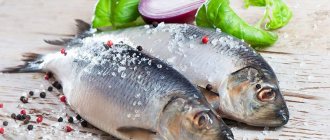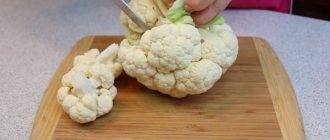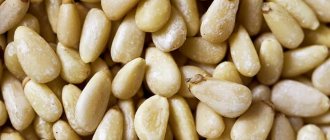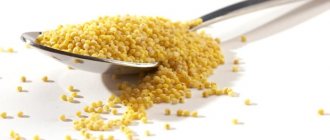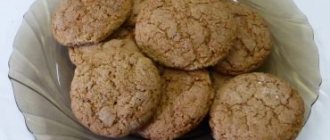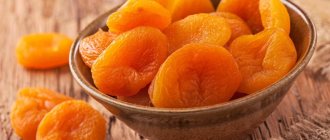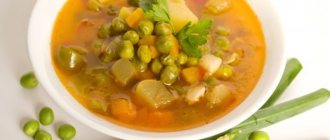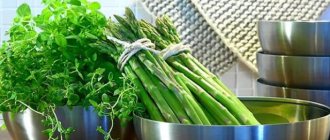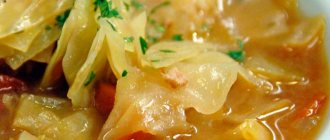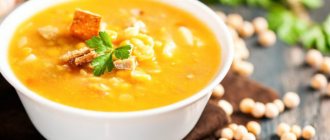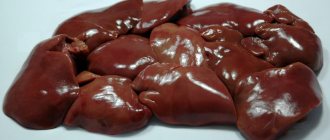There are many dietary restrictions for women who are breastfeeding. But at the same time - a paradox - the need for vitamins and microelements important for health is increasing. According to our wise grandmothers, the best assistant in this matter for a nursing mother is dill water.
Dill and fennel seeds, from which drinks are prepared, improve lactation, promote the removal of gases from the baby’s unformed intestines, and saturate the mother’s body with useful substances. In addition, you can prepare dill infusion at home without spending a lot of money on expensive pharmaceutical preparations.
Dill during breastfeeding: medicinal properties of the plant
Can mothers who are breastfeeding drink dill infusions? In most cases, the pediatrician will answer that it is possible. Greens and dill seeds are indispensable for women during the postpartum period. In this case, all the “components” of a natural healer are used: fresh dill greens are used to prepare salads, and dill water for lactation is prepared from the seeds.
Dill is a plant that contains the highest concentration of vitamin C. No other fruit from the citrus family can compare with it! Green medicine is also high in vitamin A and beta keratin. The quantity and variety of minerals is not inferior to vitamins. Dill also contains a lot of folic and nicotinic acid, which is necessary for babies.
It is believed that consuming this plant can significantly affect health:
- Blood pressure levels are normalized;
- The heart muscle and blood vessels will be strengthened, so headaches and heart pain will be less likely to bother you;
- Digestion is stabilized and stool is normalized, since dill contains a lot of fiber.
Treatment of cystitis
You can take dill water in the complex treatment of cystitis, as the plant has a powerful diuretic effect. In addition, this inconspicuous-looking herb will help relieve symptoms even with bronchitis, which is very important for nursing mothers, because they cannot take many medications. Dill will disinfect small wounds or cuts and help them heal faster.
Fighting excess weight
Moreover, dill will help cope with the main problem of women during the postpartum period! The gaining kilograms, which during pregnancy touched a woman with the thought that her blood lives in her, bring discomfort after childbirth. Spicy herb contains a minimum of calories, and due to its high fiber content, it is excellent for constipation. Regular cleansing of the intestines will allow mommy to quickly get rid of uncomfortable kilograms and give her a great mood.
Relief from infant colic
Dill will also help children cope with intestinal problems. Indeed, due to the fact that the tiny digestive system has not fully formed, they often suffer from colic. Mother's breast milk contains very few beneficial substances that spice is rich in. However, they are enough to reduce the number and intensity of manifestations of excessive gas formation in the small intestine. Treatment of colic with dill and infusions from it is welcomed by doctors. After all, all the components of the medicinal drink are natural.
Some pediatricians advise giving newborns dill water to treat colic. But this is a double-edged sword. Yes, the infusion will help relieve gas. But liquid that is not breast milk can have a bad effect on your baby's digestion. Ideally, until the age of 6 months, the baby should not eat or drink anything other than breast milk. This is one of the WHO rules for breastfeeding. Of course, except for situations where it is necessary for medical reasons. Therefore, drinking dill infusion by a nursing mother will be the best solution.
Beneficial features
Pharmaceutical dill (fennel) and ordinary greens contain vitamins and minerals:
- iron;
- zinc;
- potassium;
- calcium;
- phosphorus;
- carotene;
- folic acid;
- vitamins E, C, B.
The following beneficial properties of the product are highlighted:
- Hypoallergenic. Helps get rid of rashes, itching, eliminates the inflammatory process, promotes rapid healing of wounds.
- Expectorant. When you cough, the airways are cleared and mucus is expelled.
- Diuretic. Used to prevent the development of cystitis or treat it.
- Cleansing. Contains a large amount of fiber, which helps cleanse the intestines and eliminate bloating.
- Immunostimulating. Activates the body's protective functions, helps treat respiratory diseases, and recover after childbirth.
- Eliminate appetite problems. Stimulates the production of gastric juice.
- Normalizes metabolic processes.
- Lowers blood pressure.
- Prevents the development of cardiovascular pathologies.
This drink helps improve lactation, so breastfeeding is a reason to drink it.
Dill is a low-calorie and at the same time rich in vitamins product, which has almost no contraindications. Like other members of the Apiaceae family, this plant can be eaten to normalize digestion, relieve colic in newborns and stimulate lactation after childbirth in their mothers. The best option for combating infant colic is for the mother to take dill water, tea or decoction. And only if this method is unsuccessful, should you move on to adding water directly to milk or baby formula, as this can lead to a decrease in the newborn’s appetite.
Dill water for lactation
Dill
But dill water is most valuable for nursing mothers due to its ability to increase lactation. All the beneficial substances that are in the weed stimulate an increase in breast milk and help it be released better. Therefore, women who regularly consume dill do not experience stagnation of milk, which causes inflammatory processes in the breasts.
Few people know that dill water is the name given to infusions made from two herbs: dill and fennel. However, their taste is very similar. However, fennel has a greater concentration of vitamins and minerals than dill, so it is more beneficial and effective for a nursing mother.
Fennel
Despite the fact that a woman’s body is designed in such a way that milk appears in her mammary glands immediately after childbirth, for various reasons its quantity may decrease. Stress, improper or infrequent milk feeding, poor nutrition, illness - this is an incomplete list of reasons due to which the composition of milk, its fat content and quantity changes. Of course, you first need to get rid of the root cause of decreased lactation. You can also use a decoction of natural ingredients, which promotes milk flow.
Of course, it is much easier for a mother to refuse breastfeeding altogether. However, breast milk contains special enzymes that help the baby’s immune system develop faster. In addition, only it contains important components that provide optimal conditions for the growth and development of the baby. Are you really going to voluntarily deprive your own child of all this?
A natural remedy for increasing lactation are drinks based on dill and fennel. We have already said that the main properties of dill water are increasing the quantity and quality of milk and facilitating the passage of gases. Therefore, you need to use infusions systematically.
It is believed that even the smell of dill will produce more milk. Therefore, in ancient times, in the house where a baby was born, a linen bag filled with the seeds of this plant was always hung over the young mother’s bed.
Doctor Komarovsky's opinion
The famous TV presenter Dr. Komarovsky, beloved by parents, believes that dill water should be given to newborn children. The doctor claims that dill water has never harmed anyone.
Komarovsky believes that dill water does not help much as a remedy for colic, since there is very little dill in such water and it has minimal effect on the child’s body. The benefit of such water is that being in a hot apartment, a newborn baby needs more liquid than in normal climatic conditions (air temperature 18–23°C, humidity 40–60%). If you do not give your baby water, he will overeat breast milk in an attempt to quench his thirst, which will lead to excessive weight gain.
Ingredients:
Let's work together to make the unique material even better, and after reading it, we ask you to repost it on a social network convenient for you. net.
How to make dill water and tea
There are many recipes for delicious and healthy drinks made from fennel seeds and regular dill. Let's look at how to properly use these plants during breastfeeding.
Making dill water at home is very simple. You need a glass bowl into which you add a spoonful of fennel seeds or regular dill. Pour one glass of boiling water over the seeds, mix well and cover with a lid. For a better effect, you can wrap the container with a towel. Preparing dill water will only take 15 minutes. After waiting the specified time, the resulting solution is filtered through a fine sieve or gauze.
In the summer, when useful herbs can be found in any garden bed, dill water is prepared from fresh dill. First, the raw materials are prepared: the plant is finely chopped with a knife. Boil 250 ml of water and pour dill into it (a tablespoon of raw material is enough). Cover with a lid and let the water steep for 15 minutes. Prepared dill tea must be strained before use.
For mothers who do not want to spend time preparing homemade infusions, modern pharmaceuticals offer to buy ready-made dill water. However, its main component is not seeds, but fennel oil, so it is considered more effective.
To prepare an infusion that is not inferior in effectiveness to a pharmaceutical product, you can replace fennel seeds with fennel oil when preparing tea. It is sold at the pharmacy. This tea is prepared in no more than a minute. Considering that the oil has a very high concentration of nutrients, you will need only 2 drops per 1 liter of water. The oily liquid must be mixed well and used for its intended purpose.
Despite the fact that prepared infusions retain their healing properties for about 30 days, it is better for nursing mothers to prepare a new portion of the drink before each use. Or at least once a day.
How to grow dill and prepare it for the winter
It's easier to buy greens in a store or market. But is it really that useful? Often, farmers, in pursuit of profit, push the concern for consumer health into the background, fertilizing the land and spraying plants with chemicals. This dill grows quickly, acquires a bright green color and an appetizing appearance. However, it can not only be of little use, but even harmful.
Daria, 33 years old
When my third daughter was born, the whole family moved to live in the village. We decided that fresh air and natural products would benefit the family’s health. Then I learned that villagers grow food for sale and for themselves in different ways. What they grow for sale may be even worse than the goods sold in stores. After all, large supermarkets have certificates for the products they sell. Such products must meet minimum quality standards. If you buy products at the market from farmers or villagers, then you have no guarantee that these products were grown without harmful chemicals.
Over time, I made friends with local housewives and asked them to sell me the products that they grow “for themselves.” When the whole family returned to the city, I began to buy greens, vegetables, meat and dairy products only in large supermarkets. And I grow what I can on my windowsill. These are onions, dill, parsley.
We grow dill with our own hands
To grow dill you will need a pot, soil (you can buy soil for seedlings in the store) and dill seeds.
- Pour warm water into a saucer, place cotton wool, toilet paper or napkins in the saucer until they are completely wet. Sprinkle dill seeds on top.
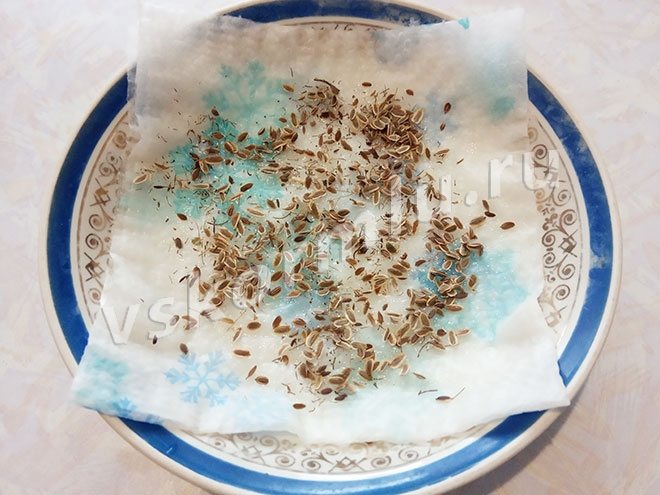
I took a paper kitchen towel, folded it 4 times, filled it with water until it was completely saturated and planted the dill seeds. - Place the saucer on or under a radiator or other warm place. Don't forget to add water. Wipes with seeds should always be damp.
- You can wrap the saucer in a plastic bag to prevent moisture from evaporating.
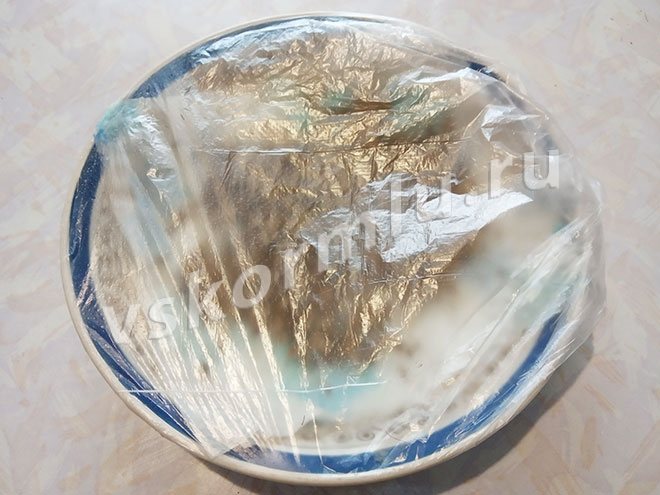
The napkin will remain wet in the bag for a long time. The main thing is to remove the bag when the seeds begin to germinate and quickly replant them in the ground. - After a few days, when the seeds swell and germinate, plant them in the ground.
- After 1-2 weeks, dill sprouts will appear and you will soon be able to harvest.
- Water the soil as it dries out. Dill does not require any more care.
Harvesting greens for the winter
Nursing mothers are prohibited from eating any canned food. Thus, all that remains for harvesting for the winter is freezing and drying. When frozen, the product retains all its beneficial properties. Not all breastfeeding women have freezers as spacious as they would like. And then drying comes to the rescue. Dried herbs are also useful.
Freezing
- In summer or early autumn, purchase a large amount of dill from a trusted seller.
- Wash and chop the greens as usual.
- Place the greens in a plastic bag or several. I get several bags for the winter, since our family loves dill.
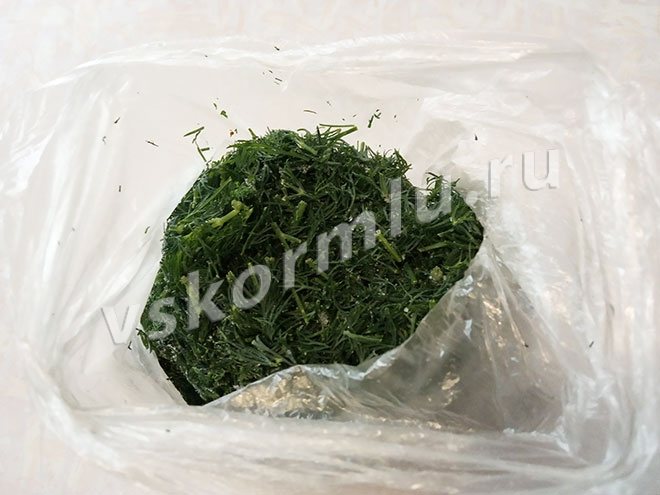
Chopped dill, placed in a food bag to freeze for the winter. - Tie the bags tightly.
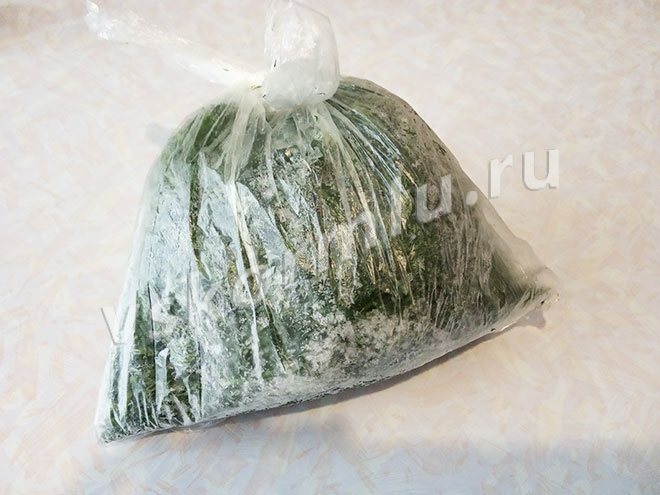
Frozen dill retains all its beneficial properties. It is indispensable for breastfeeding in the winter and spring, when there are few fresh natural products on sale. - When it's time to use frozen herbs for cooking, simply open the bag and sprinkle the desired amount of dill into your food. You may need to crush the bag a little with your fingers so that the dill begins to fall out of the bag.
You can freeze not only dill alone, but also make a mixture of herbs. For example, dill with parsley. Frozen greens can be stored in the freezer for up to 12 months.
Drying
- In summer or early autumn, purchase a large amount of dill from a trusted seller.
- Rinse greens thoroughly to remove insects. If you are not sure that you have coped with this task, then soak the dill in water for two hours.
- It is convenient to dry large dill branches by tying them into bunches with a cotton rag at the base and hanging them in a ventilated place. This could be an attic or a barn. It is important that the dill bunches are not exposed to direct sunlight.
- Dry thin fluffy dill branches by spreading them on white paper. Make sure that they are not exposed to direct sunlight. Do not use newspapers, as the greenery will come into contact with the printing ink and absorb these harmful components.
- After the dill has dried, crush it with your fingers to a powder and pour it into an opaque jar with a tight lid.
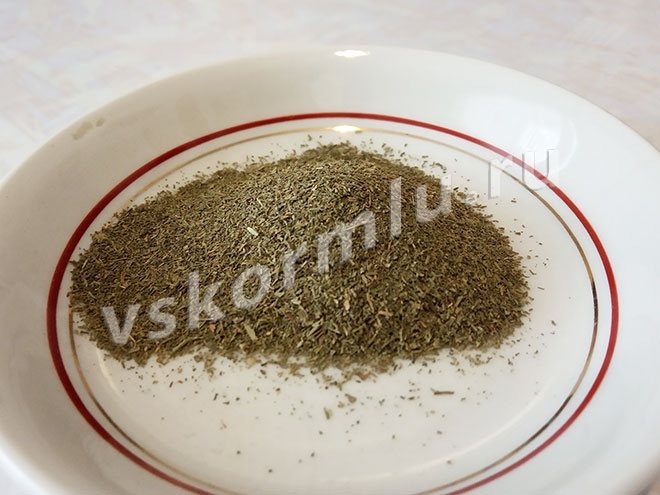
Dried dill.
Dried herbs can be stored at room temperature for no more than two years.
It is not recommended to dry dill in the oven or microwave, since when heated, dill retains its color and aroma, but loses most of its beneficial components.
For the same reason, nutritionists recommend pouring greens into a plate immediately before serving. This is especially important for nursing women, because they must provide their infant with a maximum of vitamins.
Cocktail recipe with dill to improve lactation
All dill recipes are simple and effective. However, if you want to achieve the desired result faster, you can use herbal tea to prepare a drink.
To prepare the cocktail you will need the following seeds:
- Fennel;
- Dill;
- Anise;
- Fenugreek.
The starting ingredients are taken in equal proportions (1 teaspoon each) and thoroughly ground in a coffee grinder. Then the raw materials are placed in a glass container and poured with a glass of boiling water. As in previous recipes, the infusion needs to sit. However, it will take a little more time to get “ready” - up to 30 minutes. All that remains is to strain the healthy cocktail and enjoy the result after using it.
Where to buy and for how much?
You can purchase dill water by order in pharmacies with a prescription department. You can also buy fennel extract, which you will have to dilute with water yourself according to the included instructions. Mothers also readily buy Plantex dill powder in filter bags from pharmacies for making tea.
- Ready-made water in the prescription department will cost 200–250 rubles.
- The drug "Plantex" (30 sachets) costs 400 - 650 rubles.
- Cost of fennel extract (15 ml): in Moscow – 175 – 280 rubles;
- in St. Petersburg – 175 – 230 rubles.
Dill water relieves the baby from colic, helps the mother cope with excess weight, improve lactation, and restore the body after childbirth. The finished product is sold in pharmacies , but many mothers make the product themselves. The recipes are simple; you can use fennel seeds or ordinary dill.
If you find an error, please select a piece of text and press Ctrl+Enter.
Contraindications
Despite the obvious benefits and gentle effects of natural decoction on the body, you need to know that not everyone can use dill.
The main danger lies in anetine, one of the components of the medicinal herb. It has a pronounced property of dilating blood vessels, which causes a decrease in blood pressure. Therefore, women suffering from hypotension are not recommended to use dill water.
Mothers who are familiar with food allergies should not overuse dill tea, as a reaction of individual intolerance to the herb may occur. Women with liver and gallbladder diseases should also avoid the healing infusion: it increases the production of bile.
If these categories of nursing mothers have a reduced amount of breast milk and they want to increase it, it is worth changing the main ingredient of dill water. After all, dill’s composition is similar to other plants: cumin, fennel and anise.
If you do not suffer from any of the ailments listed above, you can safely start using a healing decoction as soon as your baby is 10 days old.
The effect of the product on the body of a nursing mother and child: benefits and harms
Due to the rich content of vitamins and minerals, dill in any form has a beneficial effect on the body of a nursing mother and child. The official instructions for the pharmacological group classify the herb as an antispasmodic agent of plant origin. In addition to this effect, dill has the following effects:
- expectorant;
- anti-inflammatory;
- hypotensive;
- choleretic;
- carminative;
- lactogenic.
The plant has a complex effect on the body of a nursing mother and child. Due to the high content of fiber, essential oils, vitamins, and minerals, dill improves the functioning of the digestive tract, removes toxins, normalizes energy metabolism, and increases appetite. Women who breastfeed often suffer from intestinal problems: pain, flatulence, constipation. Using fresh herbs or a decoction of seeds as part of complex therapy can significantly alleviate unpleasant symptoms.
B vitamins and other minerals in dill have a positive effect on heart function and reduce cholesterol levels in the blood. The plant will be especially useful for women with high blood pressure. Hypotonic patients need to be careful when taking both fresh herbs and seed decoctions so as not to cause dizziness and fainting.
Infusions can be used as expectorants for inflammatory processes in the respiratory tract, facilitating the separation and release of sputum. Vitamin C helps maintain immunity at the proper level. In folk medicine, decoctions of seeds are used to prevent hemorrhoids and externally as a wound-healing and antiseptic agent. Dill is also known to have a calming effect in emotionally unstable conditions, which often worries nursing mothers.

The B vitamins contained in dill will help a nursing mother normalize sleep, relieve depression and insomnia, and cope with severe fatigue
Effect on breast milk
Official instructions classify dill as a herb that promotes milk production in nursing mothers. But in the section for use during breastfeeding it is stipulated that use is possible if the benefit to the mother is higher than the harm to the child. This information means that there have been no studies on the effects of dill on increasing milk supply in lactating women. Moreover, none of the herbs that are included in the known lactogenic preparations have an evidence-based scientific basis for any effect on lactation.
Lactation consultants believe that all herbs, teas, and pills to enhance lactation work according to the placebo effect. A woman buys an advertised miracle remedy, firmly believing that it will help. He drinks and relaxes. And the mother’s peace of mind contributes to sufficient production of breast milk and its unhindered supply. In cases where the child does not have enough food, herbs are turned to last or used as an aid in the complex struggle for long-term natural feeding of the child.
Of course, dill, like other herbs, has long been used to enhance lactation, but reviews from nursing women are so contradictory that even long-term practice of using decoctions over many generations does not prove its effectiveness. Today we can say with confidence that dill has no effect on breast milk.
Is dill a highly allergenic product?
In the age of widespread allergic reactions in a large number of adults and children, a nursing woman has to use new foods and medications with caution. Many herbs included in preparations for increasing lactation can cause negative manifestations in both mother and baby. For example, cumin, anise, fennel, etc. Dill will confidently take the last position in this list, since in rare cases it causes side effects. If a nursing woman likes the tart taste of a fresh plant or decoction and it brings her positive emotions, then she can use it after agreeing on the dosage and duration of use with her pediatrician.
The big advantage of dill compared to its closest relative, fennel, is its low allergenicity, which is very important for a nursing mother and baby.
